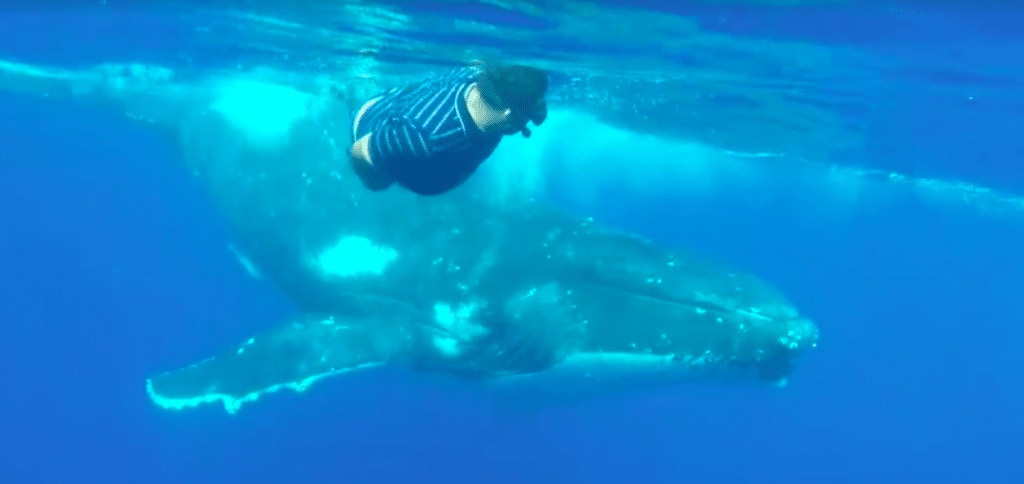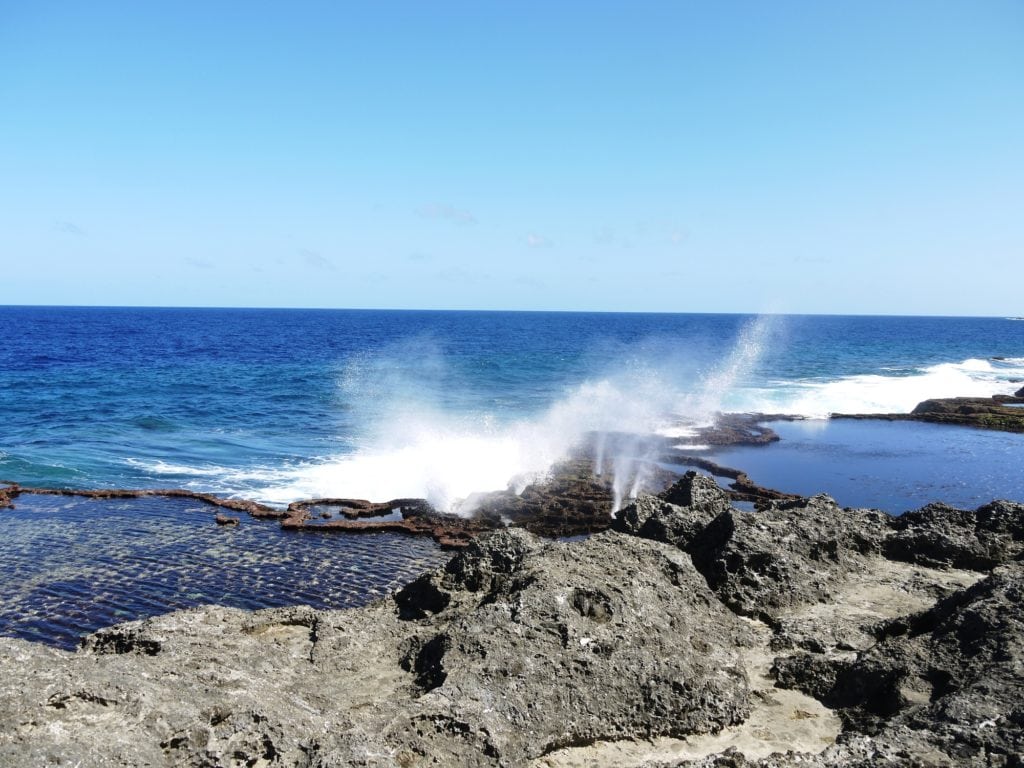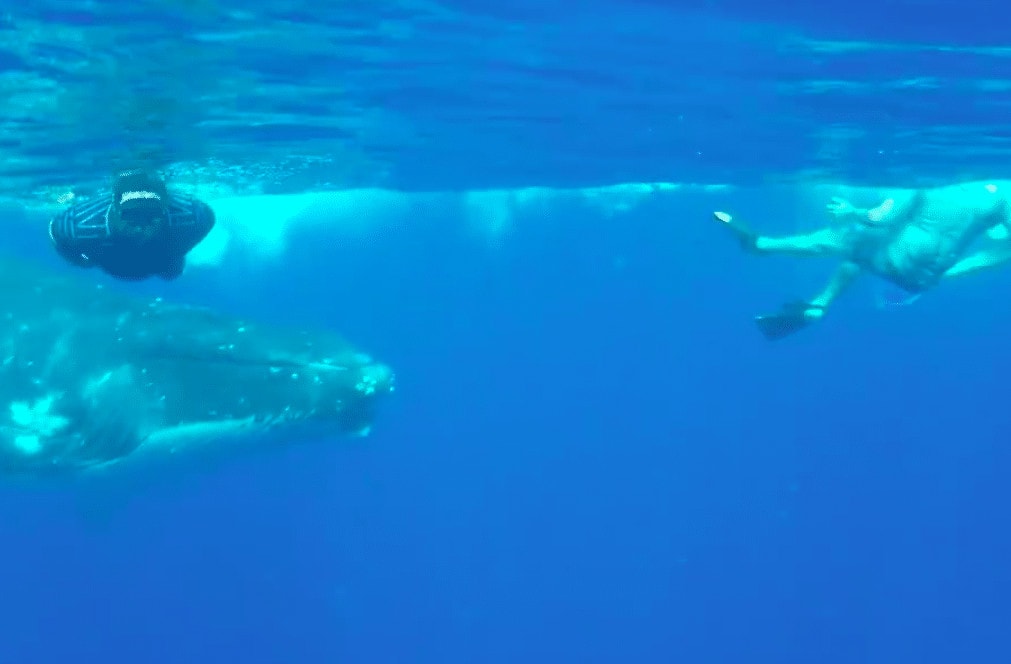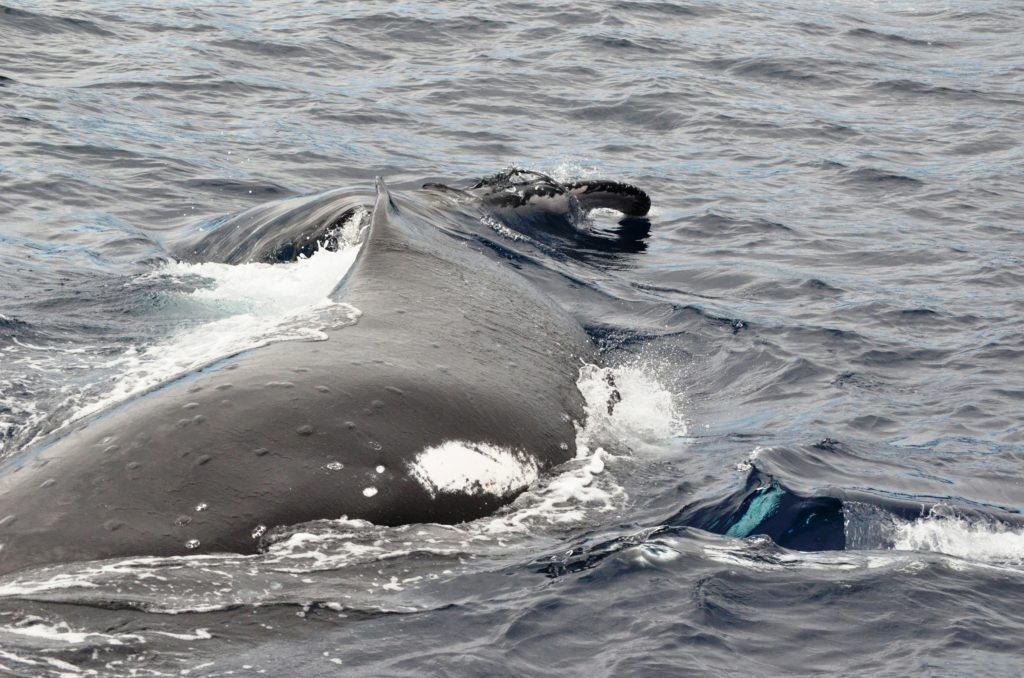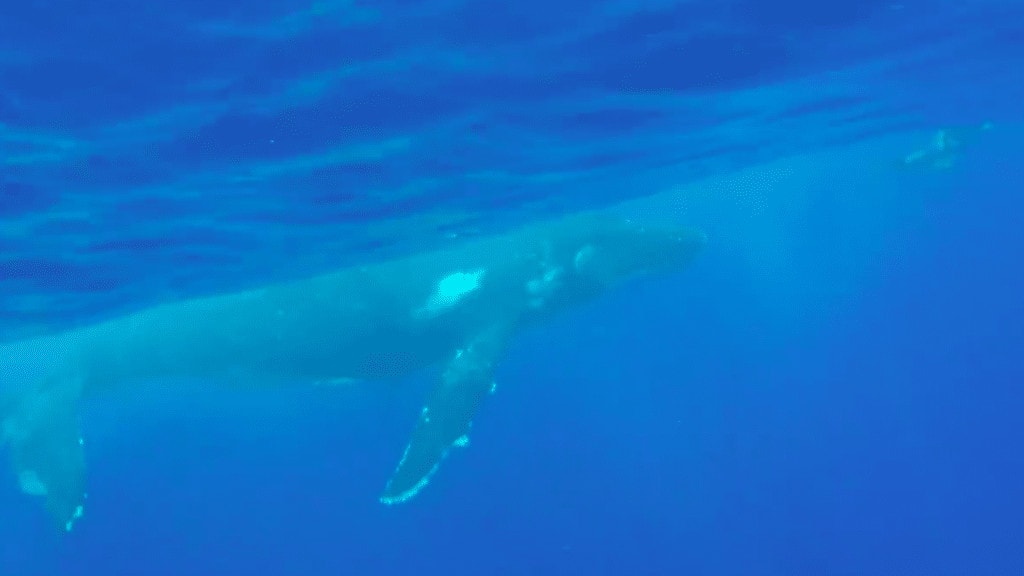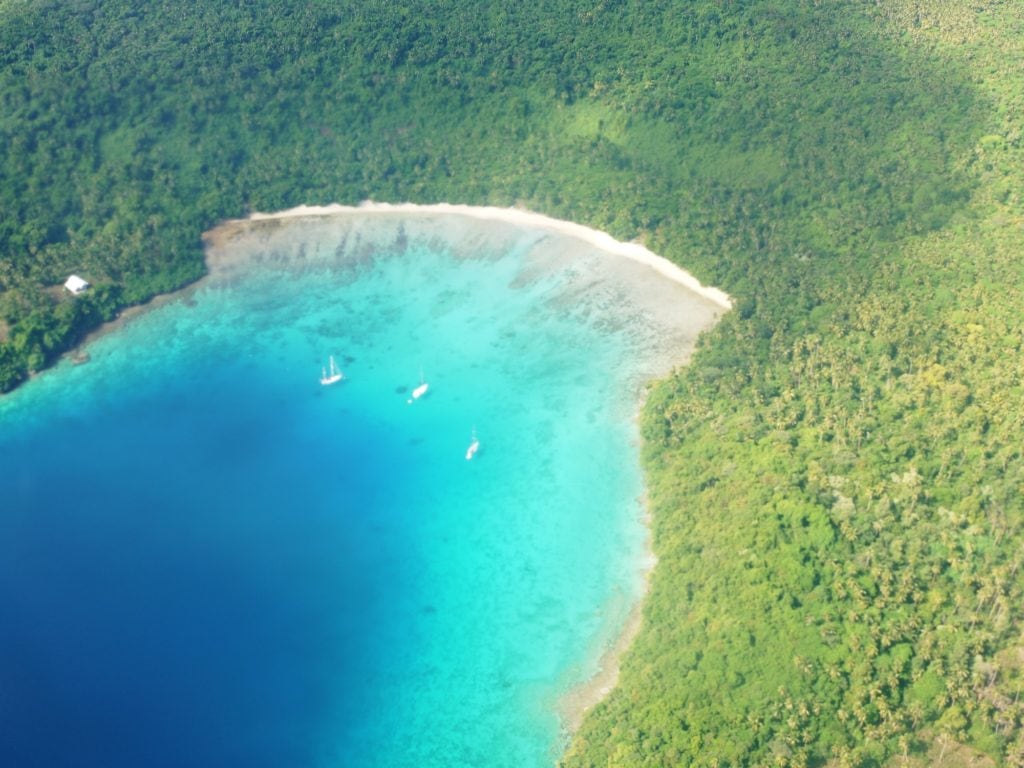I love animals and nature and through my travels I always try to visit parks and wildlife sanctuaries or try to participate in any sort of animal encounter. Swimming with humpback whales in Tonga, one of the least visited countries in the world, was one of the most impressive experiences, mostly because you can get up and close with these majestic animals in the complete wildness of the ocean.
Tonga, the beautiful and undiscovered country in the South Pacific
Tonga was a last minute addition to my Pacific trip. When I was in Fiji I was having an incredibly amazing time and decided that I would rather stay for an extra 3 weeks in the area before heading back. The joys of solo traveling is that you can decide anytime to change plans. The idea came to visit Tonga when I entered the only bookstore in Suva. The guide for Tonga and Samoa was the only travel guide they had, so it was fate that took me there. I knew nothing about what to expect before I boarded the plane, but in hindsight, it was an excellent choice!
Only a short flight away from Suva, the capital of Tonga, Nuku’alofa, is nothing extraordinary to write home about, but its charm lies in the peacefulness of life. It is a sleepy quiet town with badly lit streets, barking scary dogs, barely any taxis and nothing much to do other than wandering the streets and sorting out logistics. The rest of the island, however, offers a bit more. Diving, swimming with humpback whales and exploring the many volcanic beaches on the other side of the island are all good ways to spend a couple of days.
As with many of the really small countries in the South Pacific, there is not a lot in the way of tourism infrastructure except for the round island minivan tours offered by a well known British man, Tony, who owns the best hostel on the island. The tour takes no longer than a few hours where you can marvel at the many completely empty pretty beaches with white powder sand and crystal clear waters and count the numerous Mormon churches that dot the city. The Mormons have left a mark in the area, not just in Tonga but across the Pacific, building churches and schools and Tony has a penchant for pointing that out.
The other interesting phenomenon are the blowholes, which on a good day, violently regurgitate water. Tony also likes to point at the many crops being grown, which he avidly describes with an incredible amount of detail only a farmer would know about. You can’t hep but remember that being in such a remote part of the world, whatever can be grown locally is part of the common diet. Whatever is imported is expensive and its provisioning is erratic.
But the most exhilarating sight on the trip is the occasional humpback whale spotted in the horizon jumping off the water, splashing and dipping back in. In the peak summer months they are everywhere. Although you can swim with them in the capital, it is much better to fly (or take the ferry – overnight) to the Vava’u archipelago islands where not only sightings are kind of guaranteed but the surroundings are much more beautiful and peaceful. And if you are lucky, you will see them from the plane – I was allowed in the cockpit and saw them from the air. That was spectacular!
Humpback whales in Vava’u archipelago
I arrived in Vava’u with the intention of diving and swimming with the whales and I was quickly acquainted with the ways of the islands. As soon as I got out of my hotel looking for the dive centre I met a couple of Aussies who were there for a few months volunteering with environmental associations and I was quickly set for the next day.
Life on the islands is as peaceful as expected but something very peculiar happens in Vava’u. Because the port is a very protected and is a safe anchorage for large yachts, it attracts a lot of private luxury yachts that are moored there for long periods of time when the owners are back home. Expats are overrepresented there with not only the super yacht crews spending evenings on shore after finishing their shift, but also with a relevant amount of foreigners who manage the local tourism businesses: sailing, diving, whale watching, quad biking, etc. all are owned by Americans, Aussies or Kiwis.
Additionally, there are a couple of NGOs and Peace Corps deployments, further increasing the expat numbers. So out of a population of around 1,000 people there are about 100+ foreigners in the most visible places downtown. Pop into any bar/restaurant and you will be surprised at the football being shown on TV, the Trivia nights, the drag queen shows or the full moon parties. Prices of food and drinks will also shock you. Collateral damage of so many relatively wealthy people in a very remote place.
On my second day I was picked up in the morning from the pier in front of my hotel ready for seeing these wonderful creatures. From shore, you can watch them in the nearby horizon, splashing around, but from the boat, the size of these creatures and their delicate yet strong strokes becomes apparent. They are enormous. Weighting over 30 tons and measuring more than 15m you have to be brave to jump in and share the waters with them. This is not a controlled environment, this is the open sea.
Vava’u is specially gifted because, as most of the tropical weather areas where whales go to breed, the sightings of calves and mothers is very common. During the winter months in Antarctica, whales make their way up to warmer waters where they breed and wait for the weather to improve. They live off their food reserves and stored fat and fast for the entire time. You need not worry about them being hungry and eating humans, they primarily feed on small fish.
The whale watching expeditions do not go very far, a few meters from the port and still very close to islands and land, whales can already be seen. Under water, you can also hear their chants and, from the boat, you can often see them blowing water as they breathe. It is an incredible experience to be so close to them and observe them dancing in and out of the water. You sometimes have the feeling that they are putting up a show for the tourists. But then comes the real deal – jumping in!
You shouldn’t think about it too much. When the guide gives you the cue, you just jump in, without hesitating. Diving is not allowed because the bubbles may bother the whales, so you do so with a mask and snorkel only. When you are diving in the area you can hear their chants but should avoid getting close so as not to scare them.
Swimming with humpback whales in Tonga
Under water, in your wet suit, and with your snorkel and fins, it is just you and them. Sometimes they pass by swimming fast, shyly getting away from you. Other times they decide to come slowly and stay around you, curious to see what you are. And when you hit the jackpot, the mother and calf may be right beside you and play around you for a long time, sometimes for 15 to 20 minutes. Then, the magic of the moment will truly leave you speechless and you will forget about any fears as they gently move around you carefully trying not to aggressively shake the waters so that swimmers don’t get thrown away by the ensuing waves. They are very intelligent animals so they can sense perfectly how you feel. If you are calm and quiet you may get lucky and have the best time of your life.
Although fear may prevent you from jumping in, the adrenaline that rushes through when the guide says “Now!” makes you act quickly. Once you are in the water and see that they are friendly and harmless, you quickly forget any fear.
I went whale watching only once, but I now wish I had done it more. Being in the wild, in open waters and swimming with these gigantic animals makes you realise not only how tiny you are but also how beautiful and incredible the animal world is. So intelligent and so gentle, they swim past you in a constant and gracious stroke without sending you tumbling. They are beautiful animals
Practicalities of swimming with humpback whales in Tonga
Whale watching happens in the summer months when sightings are practically guaranteed. Wear a wet suit as being on a boat all day is no fun. In Vava’u stay at Port Wine, a lovely B&B just off the main street.
- Check if you need a visa, get help processing it at iVisa.
- Never ever leave without travel insurance. Get affordable coverage from World Nomads or long term insurance from Safety Wing.
- I find all of my flights on KAYAK. Check their Deals section too.
- Search for all your transportation between destinations on the trusted travel booking platform Bookaway.
- I book all my day trips and tours via GetYourGuide, they are the best and their tours are refundable up to 24h in advance.
- Get USD35 off your first booking with Airbnb.
- Compare hotels EVERYWHERE at HotelsCombined and book with Booking.com.
- Compare car rental prices at Rentalcars.com

